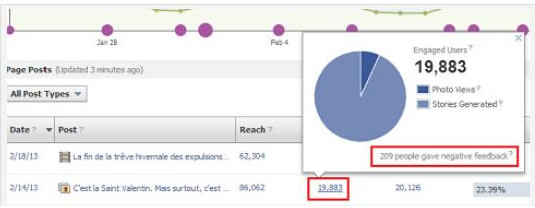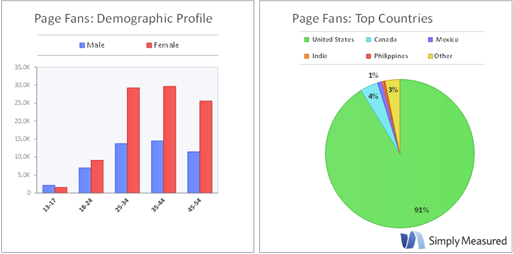Facebook Metrics Every Marketer Should Measure

Social media ROI is as relevant today as when the discussion first started a few years ago. Executives and marketers still have high expectations for tracking the returns of their social media activities. Facebook in particular, is receiving great attention from executives in terms of its returns. Here are some important metrics you can use to measure your Facebook Page’s performance:
-
Reach
Reach is the number of fans who have seen your post. Deep reach is the number of views that was generated organically without actions such as likes, comments, or shares. By measuring reach you can see the impact of your content.
There are several methods to measure your reach:
- Measure it via your Page’s Timeline

One of the easiest ways to measure your reach is by looking at your posts in the admin area of your page.
Viewing reach this way allows you to take a quick look at your results without seeing your number or likes, comments, or shares. - Measure it via Insights
Go to your insights page and scroll down to your published posts and you’ll be able to see your post’s reach.
The insights view shows you details such as the number of people who have clicked, shared, liked, or commented your post.
- Measure it via your Page’s Timeline
-
Engagement
Engagement is the second most important metric to know as it shows the number of people who have engaged with your blog post. The difference between reach and engagement is that reach tells you how many people may have seen your content while engagement is the number of people who have interacted with your content.
Engagement is the only metric that you can use to determine if your audience is interested in your content.- Measure it via Insights
To find the number of engaged users, go to your Insights page and take a look at your “Engaged Users” column.

- Measure it via Insights
-
Negative Feedback
Negative feedback shows the “negative” actions you have received on your content. Negative actions include hiding a specific post, hiding all future posts from your page, unliking your page or even worse, reporting it as spam. Posts that receive negative feedback should always be examined. You should always test and analyze to see which posts receive the most and least negative feedback.
To see your number of negative feedbacks, go to your insights page and click on the engaged users number. From there you can find the amount of users who have given you negative feedbacks.
-
Identify Who Your Fans Are
The location, age, and gender of your fans can help you create content relevant to your target audience. To identify who your fans are, use Facebook Insights demographic data.



